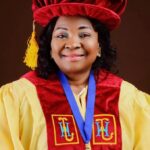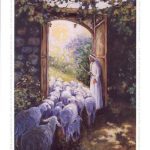Tongue of a disciple
Discipleship is a call to daily discipline. The Bible says ‘He wakens me morning by morning, He wakens my ear to hear as a disciple’ (Is 50). What the New King James version called learned or a learner is what the Amplified version called a disciple. We could see that Isaiah did not become a sharp and accurate, messianic prophet overnight. We are called into a cumulative discipline of waking up morning by morning to meet with Him that quietly sharpens our tongues and gives us a clear utterance so as to speak redemptive words to the hearts of people. Let us pray and ask God to take away our dross and the silversmith will have the material for his vessel. thank you for...
Read More





Recent Comments